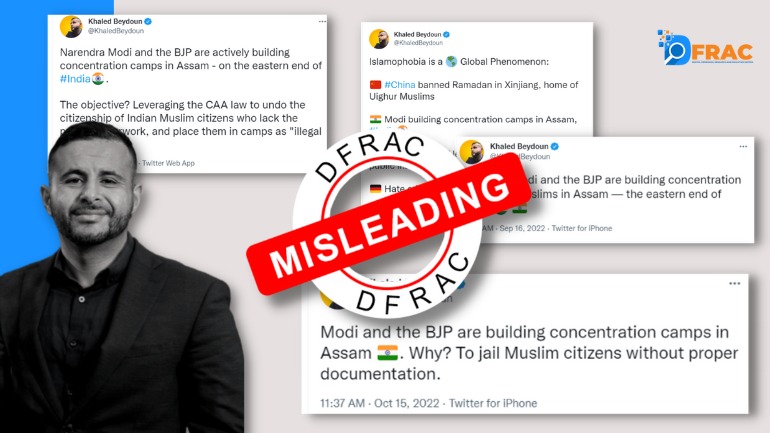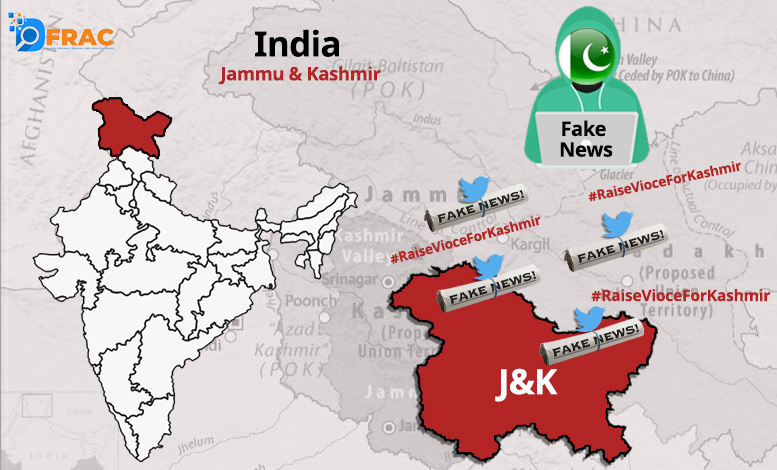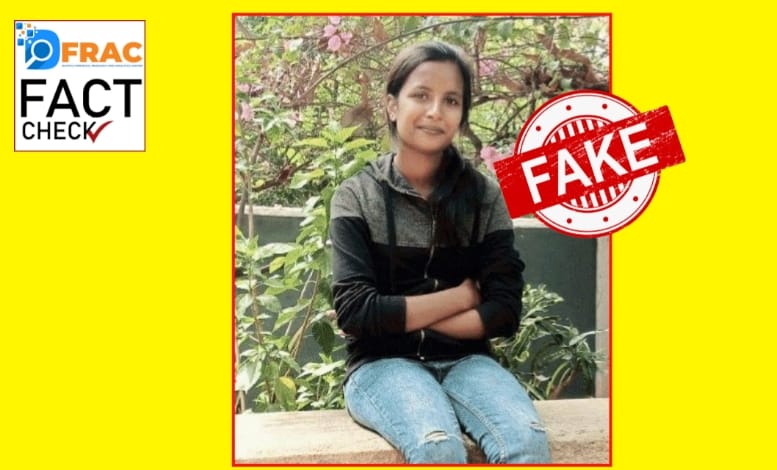There is a claim made by Khaled Beydoun for a long time. He claimed that “Modi and the BJP are building concentration camps in Assam. Why? To jail Muslim citizens without proper documentation.”
Soon his tweet became viral with thousands of likes. Further, he has shared the same claim several times.

Fact Check
To know the veracity of Beydoun’s claim DFRC team took many dimensions into account. These include the historical and present scenario of illegal migration, the demography of Assam and the detention centers to hold migrants. The very first thing that is needed to analyze his claim is to have a clear definition of the term ‘concentration camp.’
What are Concentration Camps?
Concentration Camps are places where political prisoners or people of persecuted minorities are deliberately kept. They are generally kept in small areas with lack of facilities. Among the most infamous concentration camps are those which were made by Hitler in Germany. Thousands of Germans were kept there forcefully. According to Holocaust Encyclopedia, “what distinguishes a concentration camp from prison (in the modern sense) is that it functions outside of a judicial system. The prisoners are not indicted or convicted of any crime by judicial process.” Present days examples of concentration camps are those built by China in Xinjiang, for the Uighur Muslims.
Migrant Crisis in Assam
For decades India is facing serious problems due to illegal migrants and refugee crisis from neighboring countries like Bangladesh, Myanmar, and Pakistan. Moreover, illegal migration has caused substantial demographic changes in the regions like Assam.
The Ministry of Home Affairs came up with a quasi-judicial body called Tribunals under the Foreigners (Tribunal) order, 1964. The Central Government may by order, refer the question as to whether a person is not a foreigner within the meaning of the Foreigners Act, 1946 (31 of 1946) to a Tribunal to be constituted for the purpose, of its opinion. The act was amended in 2019 to empower. It empowered district magistrates of all States and Union Territories to set up tribunals to decide whether a person staying illegally in India is a foreigner or not. It will also give opportunities to those who haven’t filed claims by referring their cases to the Tribunals. A fresh summons will be issued to them to prove their citizenship.
History of the detention centers in India
In the year, 2008-09 first detention center was made in Assam. In the white paper on the foreigner issue, 2012, mentioned that, “In most cases it was found that illegal migrants detected as foreigners by the foreigners Tribunal under the provision of the foreigners Act, 1946 go untraced after they are so detected. This has created hurdles in deportation of the foreigners detected by the Foreigners Tribunals. To impose restrictions in the movement of the detected foreigners and requiring them to reside in a particular place immediately after they are so detected and to ensure that such persons do not ‘perform the act of vanishing’, it was decided to set up detention centers to keep such foreigners till they are deported to their country of origin.”
Further, according to a report by India Today of Feb 2020, in the six detention centres house only 834 individuals, of which 559 were Muslims and 275 were Hindus.
Conclusion
In India, there is no place where its citizens are kept in extra-judicial captivity for their ethnicities or identities. In such a situation, the claim of Khaled is not only misleading but absurd also.





